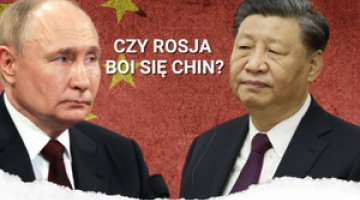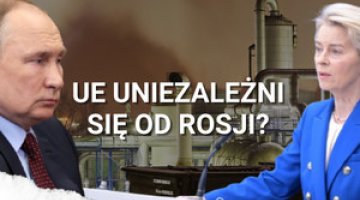Khodorkovsky: outside prison, outside Russia, outside politics
On 20 December, after 10 years in prison, Mikhail Khodorkovsky was released by a decree of pardon which President Putin had signed the previous day. Immediately after his release Khodorkovsky was transported by private plane to Berlin, where he first appeared in public. On 6 January the businessman and his family went to Switzerland.
The pardon and immediate release of Khodorkovsky represents a departure from the Russian government’s long-standing policy of detaining the businessman, who had been seen as a political threat, in prison. This indicates that the Kremlin believes the ‘Khodorkovsky factor’ has burned out with respect to the socio-political situation in Russia. The main short-term motive for the decision was a desire to improve Russia’s image before the Olympics in Sochi, which is a project of personal prestige for Vladimir Putin. At the same time the former oligarch’s release was a demonstration of power by the president, who underlined his status as the main decision-maker, with the right to take arbitrary and unpredictable decisions. However, this move should not be seen as a signal of liberalisation; after the Olympic Games in Sochi, the Kremlin is likely to resume its restrictive policy of last year.
Operation code-named ‘Pardon’
Khodorkovsky’s release very much resembled a special operation (and incidentally coincided with the so-called Chekist Day, celebrated in Russia on 20 December). The previous day, President Vladimir Putin had referred to Khodorkovsky’s case during his annual conference call, stating vaguely that the prosecutor’s office was collecting materials for a third investigation into the Yukos affair. However, after the conference, responding on the sidelines to a question about Khodorkovsky’s fate, Putin reported that the former head of Yukos had filed an application for clemency on humanitarian grounds (his mother’s illness), and that Putin intended to accede to this request. The next day the president signed the relevant decree, which came into force immediately at the time of signing. On the same day, Khodorkovsky left the penal colony in Segezha (Karelia) and was transported to Berlin in the private plane of a German businessman. Khodorkovsky’s first public statement showed that Germany, led by Chancellor Angela Merkel and the former Foreign Minister Hans- Dietrich Genscher, had been seeking for a long time to have the ex-oligarch released. This was presented, especially by German politicians and media, as a success for Germany’s ‘secret diplomacy’, with its effective communication channels with the Kremlin.
Motives for the pardon
During his years spent in prison, Khodorkovsky refused to request a pardon, which would have been seen as an acknowledgement of his guilt. His change of mind was probably caused by two factors: family circumstances (his mother’s serious illness), and the possibility that yet another trial would be initiated against him; on 6 December the Prosecutor General’s Office informed him of the prospect of further investigations, and representatives of security services supposedly visited Khodorkovsky in the penal colony where he was detained.
At this moment, Khodorkovsky’s pardon has been dictated by a desire to improve Russia’s image before the upcoming Olympic Games in Sochi, in a situation where the country has been coming under growing criticism for its human rights violations, and when many Western leaders have already decided not to come to Sochi. This is also the background to the amnesty announced last December, thanks to which members of the band Pussy Riot, the detained foreign environmentalists from Greenpeace, and some of the opposition detainees involved in the so-called ‘Bolotny Square’ trial were all released.
Moreover, Putin’s decision proves that the ‘Khodorkovsky factor’ has no significant socio-political influence, and that the Kremlin no longer regards the former oligarch as a serious threat, since the role of political rivals has been assumed by representatives of a new generation of the opposition, led by Alexei Navalny.
Another motive for Khodorkovsky’s release may be the government’s promotion in the media of the fact that the businessman submitted a request for clemency to the president. Although, as Khodorkovsky himself emphasised, this proposal did not assume an admission of guilt, in the light of Russian law such a request implies a recognition of the legitimacy of the judgement, and prevents Khodorkovsky from applying for exoneration. The Kremlin may also assume that Khodorkovsky’s request weakens the position of Yukos’s shareholders in international courts (in 2010 and 2012, Russia lost its case during the arbitration processes brought in Stockholm by Yukos’s foreign shareholders).
Khodorkovsky captive to informal arrangements
After arriving in Berlin Khodorkovsky spoke in public, appearing at press conferences and giving several interviews. His comments were guarded and balanced. He commented cautiously on Vladimir Putin, stating that his attitude towards the president was pragmatic, because the Russian authorities had treated his family humanely. He gave no support to the idea of boycotting the Olympic Games in Sochi. Khodorkovsky declared that he did not intend to engage in political activities or financially support the Russian opposition (“as that could harm it”); although he does plan to engage in social activities, but he did not specify what that would involve. Moreover, he stated that he would not make any claims in relation to the assets of Yukos taken over by the state. He said that he could not return to Russia until the Russian Federation’s Supreme Court handed down a decision concerning some of the financial allegations against Yukos, as there would be no guarantee that he could go abroad again.
The style and content of Khodorkovsky’s statement indicate that his release was accompanied by informal conditions set by the Kremlin, which he is keeping to. As may be assumed, these conditions include his emigration from Russia, an obligation to refrain from political activities and not to support the opposition financially, withdrawing his claims related to the state’s takeover of Yukos’s assets, avoiding public criticism of President Putin, and not involving himself in international activities to the detriment of the Russian authorities, including any incitement to boycott the Olympic Games in Sochi. The fact that many of Khodorkovsky’s friends and former colleagues from Yukos are still in prison in Russia is one guarantee that he will meet these conditions.
Khodorkovsky’s pragmatic and ‘business-like’ rhetoric has raised great disappointment in Russian liberal opposition circles and commentators of opposition sympathies. Over the years spent in prison, Khodorkovsky has become a symbolic figure in these circles, and it had been expected that after his release he would become not only a sponsor for the opposition, but also a consolidating figure, and his release itself would have foreshadowed the decline of the Putin era.
Mercy as a demonstration of strength
President Putin’s decision to pardon and release Mikhail Khodorkovsky, which was carried out as a special operation, surprised observers, including Khodorkovsky’s own lawyers, who were not involved in the process of their client’s release. This element of surprise seems to have been both a conscious calculation and a demonstration of power on Putin’s part. It is aimed at reminding both the general public and the elites of his status as the main decision maker, who chooses to act unpredictably and unconventionally. This confirms that the Kremlin’s policy is becoming increasingly personalised; what was once done in the collective interest of the elite, is now increasingly becoming an expression of the arbitrary will of the president, often calculated to checkmate the ambitions of his own inner circle (as in the case of the anti-corruption measures which targeted the elite). Furthermore, the pardon for Khodorkovsky was calculated to demonstrate the personal role of Putin. The businessman had not been covered by the amnesty passed by the Parliament, and nor was he cleared by the courts; instead, he was released thanks to an act of mercy from the President, who has now gained a kind of ‘moral victory’ over his former rival, who for years had refused to play the role of supplicant.
The Kremlin’s decision to pardon Khodorkovsky and the amnesty covering certain political prisoners will temporarily neutralise Western criticism of Russia, and may ensure that the Olympic Games in Sochi pass off trouble-free. But these gestures cannot be regarded as a signal of liberalisation, taking into account the ‘price’ of pardoning the main political prisoner, as well as the interests of Vladimir Putin himself, who since his return to the presidency in May 2012 has resorted to further restrictions in order to strengthen his position among the elite and society at large.
Cooperation: Marek Menkiszak





